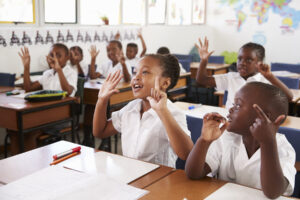If you are moving to the sunny shores of South Africa, you have a lot to consider. For instance, you must apply for a visa, search for a job, find a home, and set up a bank account. During your first days in the country, you may also spend time exploring and coming to grips with the cost of living. Also, if you have little ones in tow, you will be busy figuring out the education system and looking for schools.
The country has public and private schools, along with some well-known universities. Still, many immigrants choose international schools in South Africa, which this article explores through the following topics:
- The South African education system
- International schools in South Africa
- Types of international schools in South Africa
- Should you send your child to an international school in South Africa?
- How to choose an international school in South Africa
- Financial aid and scholarships for international schools in South Africa
- Useful resources
The South African education system
There are nearly 25,000 schools in South Africa, comprising some 23,000 state schools and 2,000 independent schools, which can be private or international institutions. The state system splits schools into primary (ages 6–12) and secondary (ages 13–18) education. Many private and international schools typically cover their whole schooling career, from nursery to graduation.
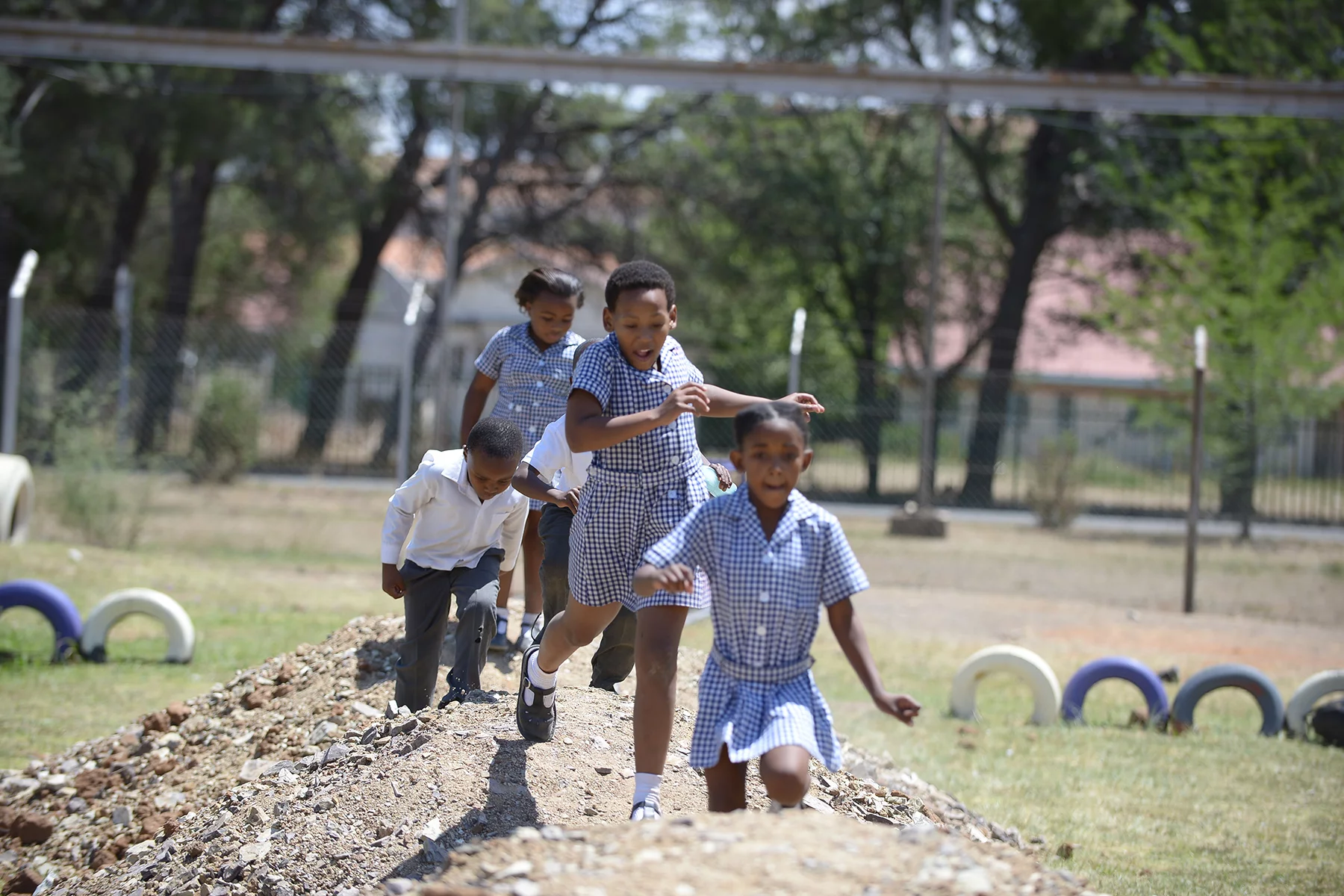
Whether you choose an international or a state school in South Africa, your child must attend compulsory schooling between the ages of seven and 15 (Grades 1 to 9). From Grades 10 to 12, students have three options. They can continue their education at an academic or technical (vocational) school and graduate when they obtain the National Senior Certificate (NSC) or Matric. Alternatively, they can leave school and start working once they turned 16.
Unfortunately, the South African education system receives regular criticism for its disparity and lack of resources, which impacts its quality of teaching, especially in the public sector. Yet, even between state schools, the standard of education can vary, depending on their resources, funding, and the contributions parents can afford to pay in school fees. As a result, the OECD ranks South Africa 75th out of 76 countries. Additionally, there is a massive gap in test scores between the top 20% of schools in the country and the remaining 80%.
The government subsidizes public schools, but they still charge school fees. On average, these can range between R30,000 to 60,000 per year. However, parents can apply to the school board for exemption if they can’t afford these costs. Private and international schools in South Africa are significantly more expensive, ranging from R100,000 to 200,000 per year.
International schools in South Africa
All schools in South Africa, including international ones, must be accredited by the Council for Quality Assurance in General and Further Education Training (Umalusi).
Out of the nearly 25,000 schools in South Africa, 53 are international. Although they offer a high standard of education, international schools are not very popular among the general population because of their high fees and strict admission requirements. However, many internationals prefer these educational institutions, especially if their employer sponsors their children.
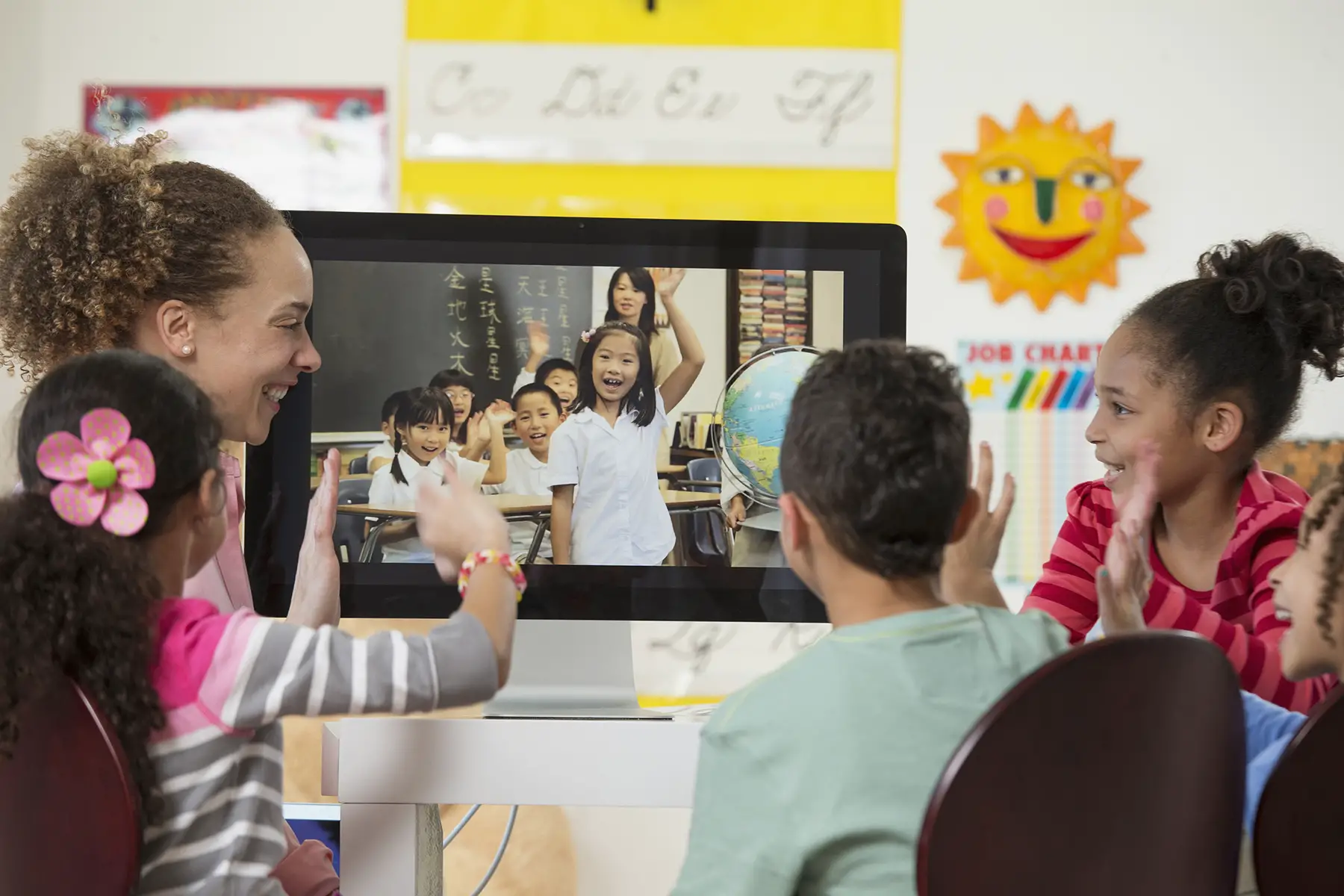
While public schools in South Africa follow the national education system, international schools teach other curriculums. For example, several offer American, British, and French syllabuses. International schools usually cover primary through secondary education, but public schools divide into primary and high schools. Middle or intermediate schools do not exist in South Africa.
In addition, most international schools teach classes in their curriculum’s language (e.g., English, German, or French) and offer second foreign language options. Conversely, in state schools, children learn in their native tongue (there are 11 official languages in the country) up to Grade 3. After that, schools generally switch to English or Afrikaans as the instruction language.
International schools also follow the August to June school year, while local schools run from January to December.
Types of international schools in South Africa
Parents are spoilt for choice regarding international schools in South Africa. Of course, each institution operates according to a particular curriculum. However, they generally offer quality education, a diverse cultural environment, and excellent facilities and activities. In addition, most nurture multilingualism by encouraging students to learn several languages.
Parents should be aware, though, that these schools are expensive. Fees differ based on the child’s age and school grade. For example, your first grader’s education at the American International School of Cape Town (AISCT) will cost, on average, R148,616 per year. You can also expect to pay around R206,032 annually for your teenager in high school. These fees are for day students and do not include boarding.
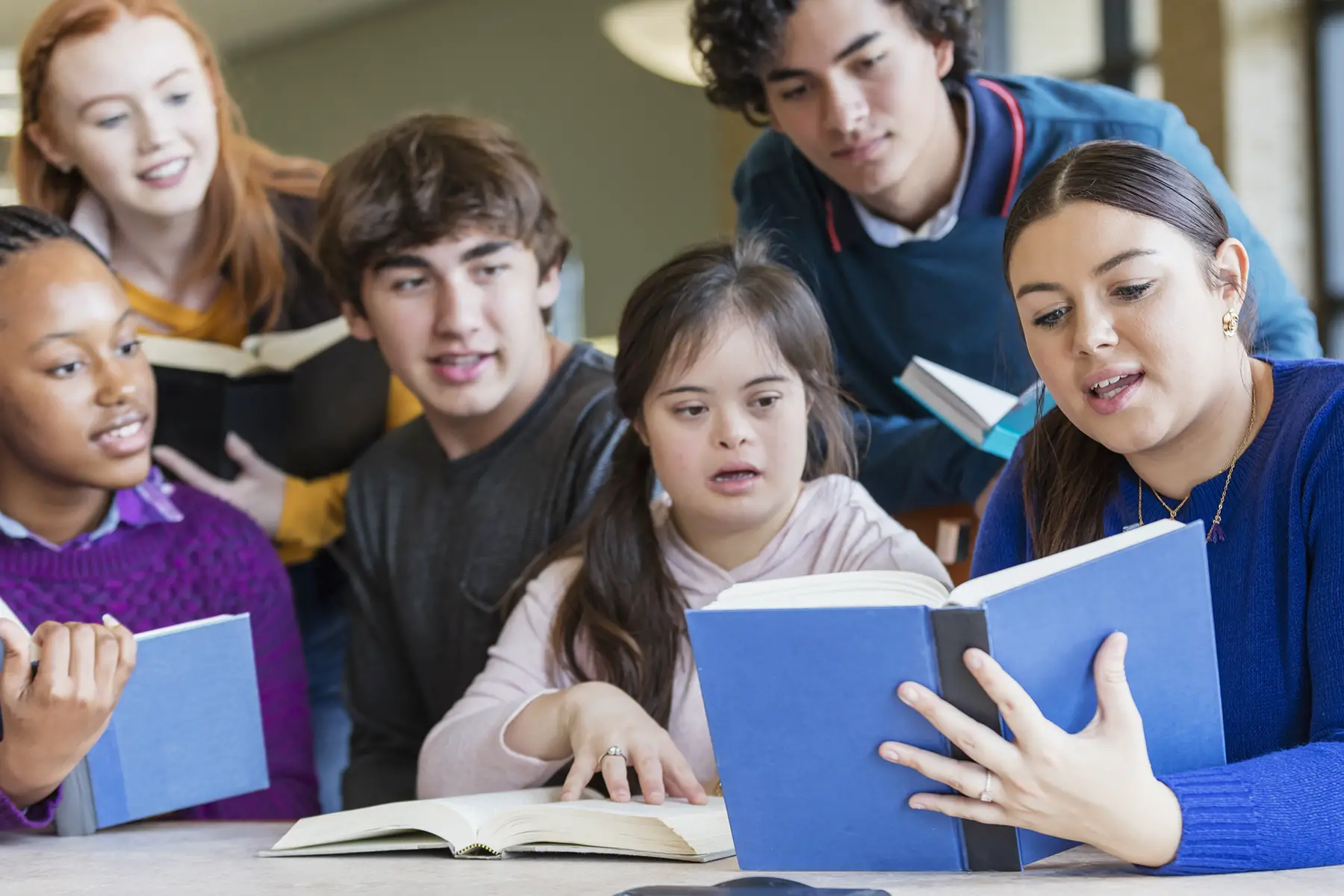
In South Africa, learners must pass a final exam to graduate or matriculate from high school. Again, this is the National Senior Certificate (NSC) for state schools, but international schools sit the exams of their home curriculum. For example, British schools will offer the General Certificate of Secondary Education (GCSE) in Year 10 and then the A-Levels in Year 12. American schools will teach Advanced Placement (AP) classes in the last two years of high school. Students will sit the SAT in the penultimate year and final exams in the senior year (12th grade).
Pupils from international schools in South Africa generally continue their academic careers by applying to universities directly after school.
International Primary Curriculum (IPC)
The International Primary Curriculum (IPC) encourages young students’ inquisitiveness and a love of learning. Catering to children between the ages of three and 12, the IPC focuses on core skills rather than academic subjects.
This encourages each child’s holistic development – emotional, social, and intellectual – allowing them to develop an inherent curiosity. While there are no formal assessments, the curriculum evaluates each child’s development in stages: 5 to 7 years, 7 to 9 years, and 9 to 11 years.
The International Baccalaureate (IB) in South Africa
South Africa got its first International Baccalaureate (IB) World School in 1994. Currently, there are 12 IB World Schools in the country. While ten institutions offer the Primary Years Programme (PYP), only three include the Middle Years Programme (MYP) or IB Diploma Programme (IBDP), such as:
- American International School of Johannesburg (AISJ)
- Hout Bay International School
- Redhill School
- Crawford International
This global curriculum aims to develop inquiring, knowledgeable young people with intercultural understanding and respect. Learning fields include mathematics, science, humanities, philosophy, and a CAS (Creativity, Action, Service) component.
To graduate and obtain the IB Diploma at the end of their final year, students have to successfully complete the following:
- Pass exams in six core subjects
- Write an extended essay in their chosen field
- Completed at least 150 CAS hours
Universities worldwide recognize this qualification. However, IB schools are expensive. Depending on the child’s grade, tuition fees can range from R44,980 to 137,439 per year, which excludes boarding.
American international schools
These schools follow the American curriculum, and students must meet specific yearly standards to continue their education. Generally, they focus on academic subjects while encouraging critical thinking, problem-solving, and analytical skills. Classes are taught in English, although they encourage students to learn a second language, such as French or Spanish.
In their final two years, pupils can take AP classes in subjects such as English, calculus, United States (US) history, economics, and chemistry to gain credit for US colleges or universities.
Typically, learners graduate with a High School Diploma. However, a high school graduate must also take the SAT if they want to study further. Most universities require these results for admission. The American International School of Cape Town (AISCT) is the most notable US international school in South Africa.
British international schools
Numerous international schools, such as the International School of South Africa (ISSA) and the Alma Mater International School, follow the British education system or the Cambridge curriculum.
The Cambridge curriculum takes a holistic approach to developing confident, intellectual, and socially engaged students. Children take core academic subjects, including English, mathematics, and science, plus social sciences, Afrikaans, music, technology (IT) classes, and physical education. Students usually sit the General Certificate of Secondary Education (GCSE) exams in Year 10 and A-Level exams in Year 12. Teachers grade learners’ work with symbols, from A* (highest) to E (fail).
International General Certificate of Secondary Education (IGCSE)
The International General Certificate of Secondary Education (IGSCE) is the international equivalent of the GCSE for 14 to 16-year-olds. The main differences are that it offers broader coursework choices (over 70 subjects and more than 30 languages) than the GCSE. Students’ projects and tests are also graded from A* to G to cater to a broader range of abilities.
Teachers use a variety of assessment tools to review students’ progress in areas, such as:
- Oral and practical skills
- Initiative, problem-solving, and application skills
- Academic knowledge and understanding
An IGCSE qualification prepares students for A-Levels or the IB Diploma, which they need to graduate secondary school and be eligible for university entry.
French international schools
Several international schools in South Africa, including the Lycée Jules Verne, follow the French curriculum.
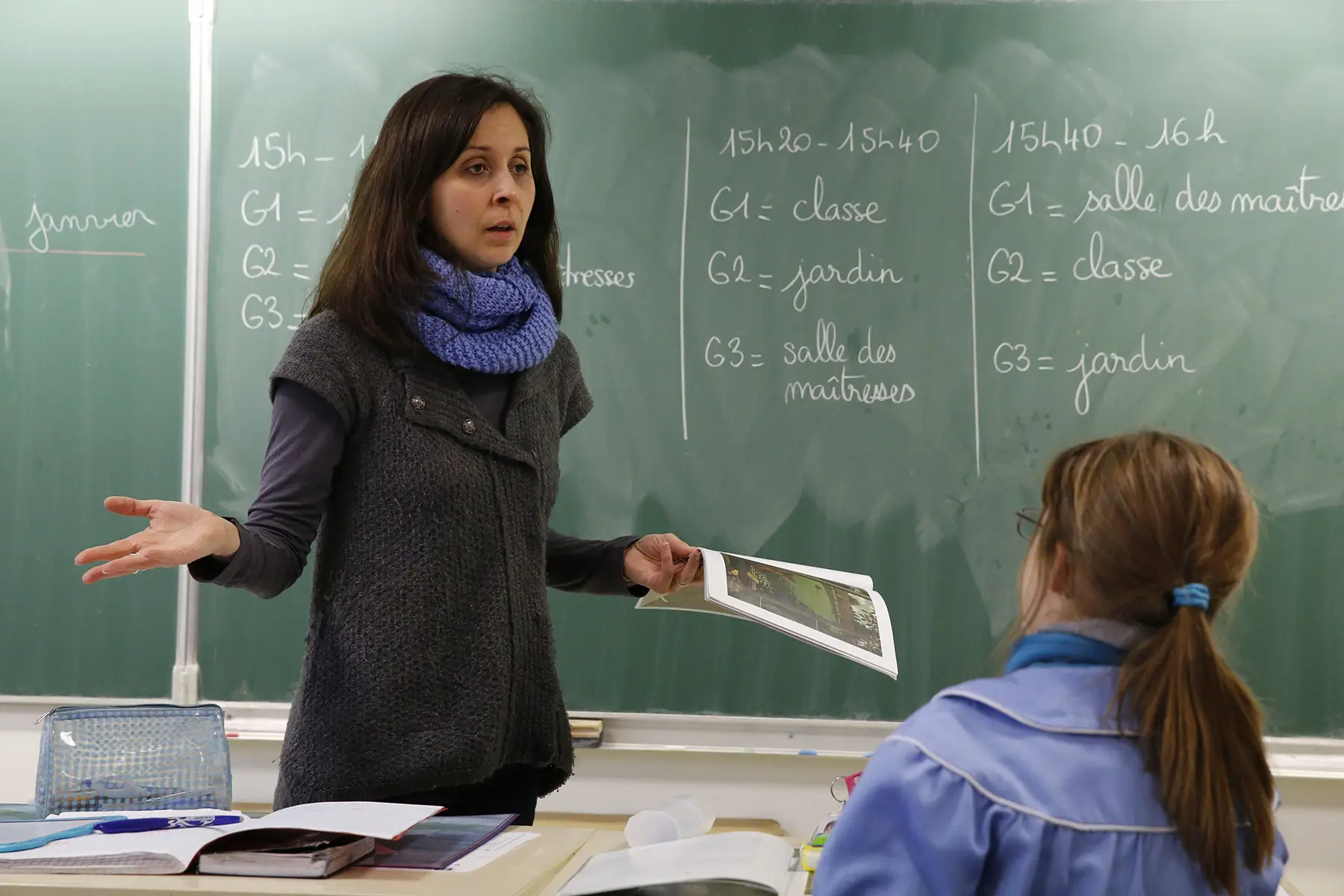
These schools usually offer bilingual education in both French and English. Students follow a rigorous academic program that covers a broad range of subjects. During secondary school (lycée), in Seconde (Year 10), they can choose new specialist subjects, such as literature, economics, and technology. Following this, students must focus on one subject during their Première (Year 11) and Terminale (Year 12). This will then be the specialization of their baccalauréat (bac), the French school leaver’s exam.
Method schools
International method schools in South Africa are generally more focused on the primary years. For example, parents can find schools specializing in the Montessori, Steiner-Waldorf, or Reggio Emilia approaches. These include the American International School of Cape Town and O’Summit International School in Johannesburg.
Religious schools
Although these are not as common, there are several international schools with religious affiliations in South Africa. These learning centers generally offer a robust academic program alongside a spiritual or theological education. Typically, these schools are affiliated with the Anglican, Catholic, Jewish, or Islamic faiths. Some examples include the King David Schools and St John’s College.
Should you send your child to an international school in South Africa?
Choosing the right school for your child can be difficult, especially when new to a country.
Therefore, international schools in South Africa have many advantages. Still, there are also some disadvantages to consider.
Of course, they offer high-quality, holistic education. Students usually enjoy an inclusive multicultural environment and can learn several languages. Class sizes tend to be smaller, which translates into more individual attention. Normally, these schools have great facilities and offer a wide array of activities. Another advantage is that students can consistently follow the same curriculum if they move countries frequently and graduate with internationally recognized qualifications.
However, parents should also consider the drawbacks of international schools in South Africa. For example, the fees are expensive, especially if your employer is not footing the bill. Also, as these institutions are mostly based in major cities, your children may have to board or endure a long commute to attend these schools. Finally, although international schools can offer great diversity, students have fewer opportunities for local integration.
How to choose an international school in South Africa
As a parent, there are many things you have to think about when choosing a school for your child. Below are some considerations when making a decision:
- Cost: Can you afford it, or will your company subsidize the fees?
- Curriculum: Should your child follow the British, American, or French system?
- Qualifications: Where does your child want to apply to university? Would they need to take Advanced Placement (AP) classes and the SAT for universities in the United States (US), or perhaps an International Baccalaureate (IB) diploma to study further in the United Kingdom (UK), Europe, or Australia?
- Languages: What instruction language do you prefer for your child, and do you want them to learn other languages?
- Extras: Which facilities and extra-curricular activities do the school offer?
- Class size: Will your child get the attention they need?
- Admission: Entry to international schools in South Africa can be competitive; can you meet the deadlines and criteria?
- Location: How far will your child commute each day, or do they need to board?
- Integration: How important is it for your child to integrate locally into the South African culture?
Financial aid and scholarships for international schools in South Africa
The state does not fund international schools in South Africa, nor is there a national financial aid scheme, and most institutions do not offer subsidies. Still, some, like the International School of Cape Town, provide scholarships, especially for high school students.

However, these are usually only for accomplished South African students from low-income families, disqualifying international learners from applying. There may be some exceptions. For instance, the King David Schools offer limited subsidies to Jewish students whose parents cannot afford the fees. Many schools also offer discounts if siblings attend the same school.
How to apply for financial aid
It is best to enquire via the school administration if financial aid is available. They would inform you about the criteria and process. Usually, you would need to complete an application and provide financial records and your child’s latest academic results.
Useful resources
- Independent School Association of Southern Africa (ISASA)
- Umalusi: Council for Quality Assurance in General and Further Education and Training
- International Baccalaureate (IB) Schools in South Africa
- International Schools Database – database for all of South Africa’s international schools



